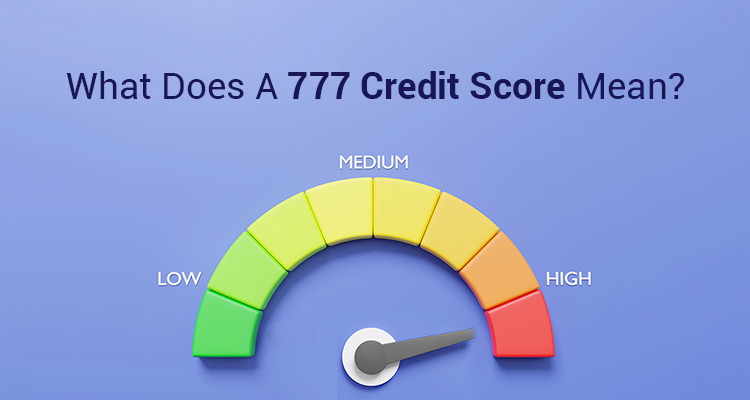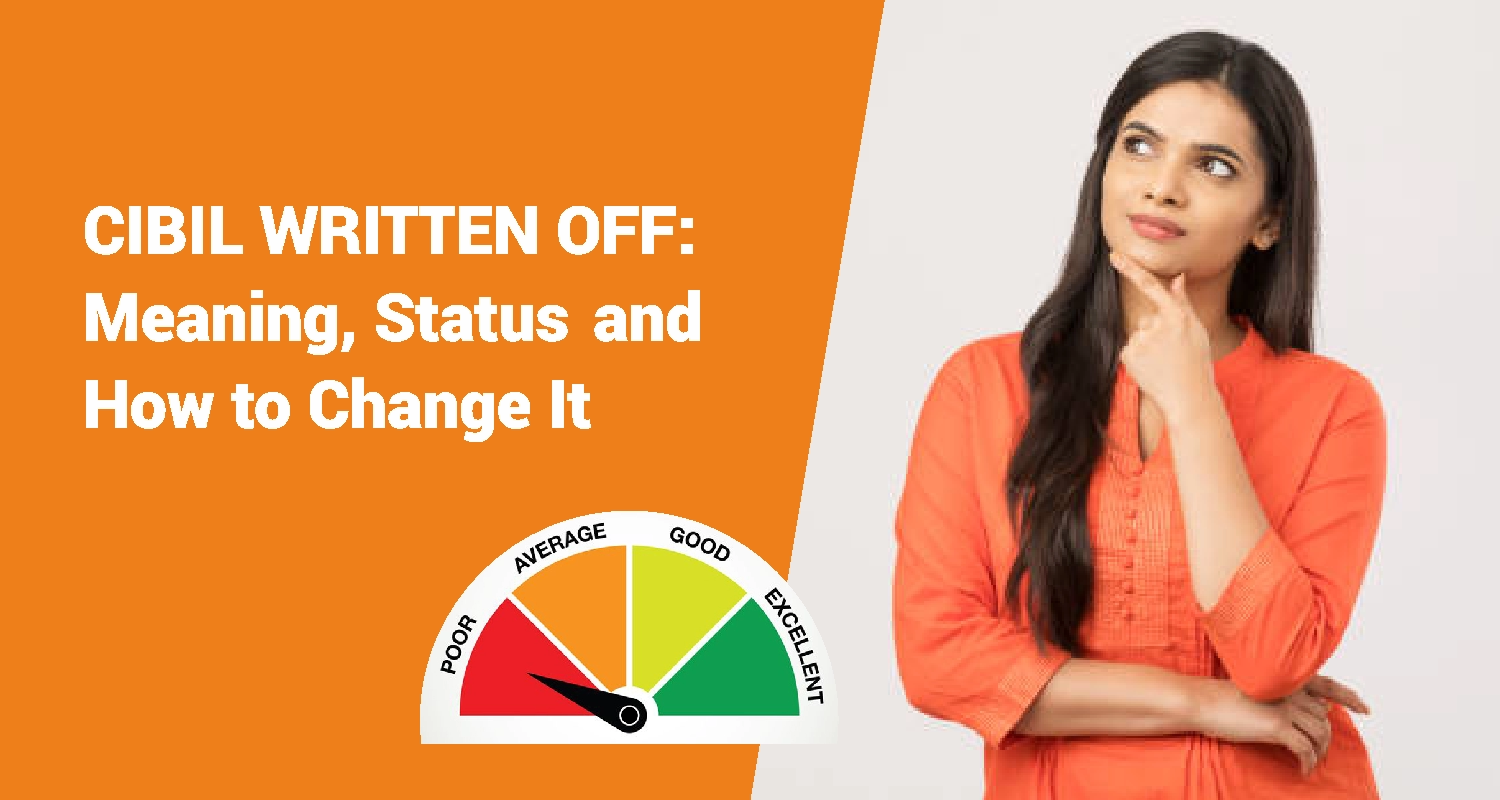What Does A 777 Credit Score Mean?

A credit score of 777 is typically seen as a good indicator of creditworthiness. Lenders and financial organisations use credit scores, which are numerical representations of a person's creditworthiness, to determine the risk of lending money to that person. Depending on the credit bureau, the precise scoring models and ranges may differ slightly, however in the majority of regularly used scoring systems, a score of 777 would be regarded favourably.
Now who decides this score? In India, the Reserve Bank of India (RBI) has granted licenses to four major credit information companies namely The Credit Information Bureau (India) Limited (CIBIL), Experian, Equifax, and Highmark. Among all of them, the CIBIL score is the most widely used credit score in India.
What Is A CIBIL score?
The CIBIL Score is a three-digit numerical summary of your credit history, rating, and report that typically ranges between 300 and 900. Based on your credit history like debt repayments, credit card expenses, loan repayments etc; a credit report will be created. The information is collected via multiple sources including banks, credit card companies, collection agencies, and governmental bodies. A mathematical method is used to analyze this credit data and forecast your creditworthiness which is nothing but your credit score. It typically takes between 18 and 36 months of credit utilization, or longer, to achieve a good credit score with a CIBIL report. The more closer your score is towards 900, the higher your creditworthiness. A 777 CIBIL score is widely considered to be a great one.Why Do You Need A Good Credit Score?
In the loan application procedure, the CIBIL score is crucial. Lenders first look at an applicant's CIBIL score and report when they receive a loan request from a person. The bank might not even consider the application further if the CIBIL score is poor. The lender will review the application and take other factors into account if the CIBIL score is high in order to decide whether the applicant is credit-worthy. A good score can help you get the best conditions on auto loans, mortgages, and premium rewards credit cards. Although it undoubtedly helps, having high credit scores doesn't ensure approval. It is just an indicator that you're a lower risk. The lenders also take into account other factors like your income and employment situation.What Is A Good Credit Score Range?
A credit score of anywhere between 650 to 749 is considered good, while credit scores between 750-900 are considered excellent. If you have these scores, it means you are doing things right. The CIBIL score serves as the lender's first impression; the higher the score, the more likely it is that the loan will be reviewed and authorised.What Is The Best Credit Score and How To Maintain It?
While 777 is an excellent score, one must take care to maintain it. By following a few important guidelines, you can maintain and even improve your CIBIL score.
Your credit score may be significantly impacted by how you handle unpaid debt. In addition to making you pay a penalty for late EMI payments, this also hurts your credit rating. Therefore, if you want to raise your CIBIL score, pay your bills on time.
It is best to have a balanced portfolio of secured (such as a mortgage or car loan) and unsecured (such as a personal loan or credit card) loans with both long and short terms. A surplus of unsecured debt could be perceived unfavorably.
You don't want to present an impression that you are constantly in need of credit, so apply for additional credit while staying within your limit. Do it only if it is an extreme case. Your credit score might be impacted by having too much debt.
Maintaining a credit score of 777 or higher indicates responsible credit management and can provide you with various benefits when seeking credit or loans. However, it's always recommended to continue practicing good financial habits to further improve your creditworthiness and maintain a healthy credit score.
Disclaimer: The information contained in this post is for general information purposes only. IIFL Finance Limited (including its associates and affiliates) ("the Company") assumes no liability or responsibility for any errors or omissions in the contents of this post and under no circumstances shall the Company be liable for any damage, loss, injury or disappointment etc. suffered by any reader. All information in this post is provided "as is", with no guarantee of completeness, accuracy, timeliness or of the results etc. obtained from the use of this information, and without warranty of any kind, express or implied, including, but not limited to warranties of performance, merchantability and fitness for a particular purpose. Given the changing nature of laws, rules and regulations, there may be delays, omissions or inaccuracies in the information contained in this post. The information on this post is provided with the understanding that the Company is not herein engaged in rendering legal, accounting, tax, or other professional advice and services. As such, it should not be used as a substitute for consultation with professional accounting, tax, legal or other competent advisers. This post may contain views and opinions which are those of the authors and do not necessarily reflect the official policy or position of any other agency or organization. This post may also contain links to external websites that are not provided or maintained by or in any way affiliated with the Company and the Company does not guarantee the accuracy, relevance, timeliness, or completeness of any information on these external websites. Any/ all (Gold/ Personal/ Business) loan product specifications and information that maybe stated in this post are subject to change from time to time, readers are advised to reach out to the Company for current specifications of the said (Gold/ Personal/ Business) loan.



